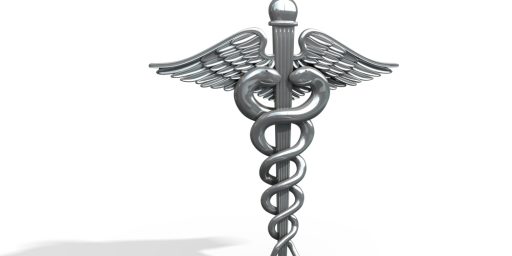Even More on Health Care
While stuck in traffic I thought about this post, and this follow-up post on health care. What struck me is the response that the scheme I’ve advocated is Statist. Technically this is true, but it misses the point by about a hundred miles. The complaint is that the scheme I’ve advocated expands the role of the state. To this I say, “Uhhh, what freaking planet have you been living on for the past 35 years?” Currently, health care in the U.S. is heavily subsidized. According to this HHS website in 2002 46% of spending on health care came from public sources (you can also see this post of mine with some additional, but very similar numbers). So this idea that suddenly we are going to massively expand the role of the state strikes me as just a weee bit off the mark. We have already started down this road, and as a result the State has expended considerably and given the piss-poor nature of our health care system it could be much, much worse if we do nothing to fix the current system.
Further, there is still some choice left in the scheme. People will get to choose who they sign up with for health insurance. They will likely still get to choose a doctor. In terms of the service they actually get little is likely to change for those who already have insurance other than instead of the employer providing the insurance the individual will now be doing it. Also, workers and their employers could possibly still form pools if they wanted too, or at least the scheme I suggested doesn’t rule this out. So this scheme is still a mix of private and public. The public collects the money, and disburses it to individuals to purchase insurance. Health care and insurance are still privately provided.
The scheme also has some good elements to it. First off, since people would still be purchasing their own health insurance they’d still have an incentive to keep the price low. Ideally, the individual would like to keep it right at the amount of the subsidy.1 So there will be an incentive to contain costs. Further, since everybody would have insurance there would be no more trying to foist off the costs of those who are unable to pay onto those who are able to pay. So we could very well see a decrease in the rate of growth in the future. Moreover, it is even possible that the current costs could go down somewhat. In addition, this scheme would make many current programs redundant, so there could be a cost savings there as well.2 In short, while this could be seen as a step back in terms of Statism, it could be one and maybe even three step forwards in terms of controlling health care costs, increasing those who are insured, and maybe even reducing current costs.
One could argue that with all the new people obtaining health insurance that this would drive up prices. I think this argument is over-stated. For one thing, many of the people who are currently uninsured are not prevented from obtaining health care. If you have no health insurance and get run over by a car and taken to the hospital you will be treated.3 So these people are by and large already getting health care. However, their typical method of recieving that health care is via the emergency room which is expensive and costly in other non-monetary ways.
Now this doesn’t say that the scheme doesn’t have its problems. One possible problem is the initial amount that is paid to individuals so that they can purchase the mandantory health care. It is possible that over time via lobbying and so forth that the amount could rise faster than inflation/the cost of living. Of course, this too could be solved. My preferred method is to amend the Constitution to basically set the amount and the growth rate over time, and possibly to require a super-majority to change.
The plan of course does little to address the coming change in demographics that is going to present a huge problem for health care. I’m not sure how to handle this problem. But this does highlight one of the big problems with ill-thought government programs. The current system of Medicare actually encourages little personal savings. Instead, the current system relies on taxes paid by current workers to fund the system (and excess funds are invested in government bonds so there is some increase in savings), but again there is little incentive to keep costs controlled. Medicare scams are well known and often pretty big. The option of not doing anything, is not an option. Maybe the best solution is to go with just the market, but I don’t think that is politically viable. I’m willing to consider other schemes, plans and options, but I’m just not seeing much of anything.
_____
1So far I have been using $2,000/individual. This amount is not set in stone though and shouldn’t be taken as such. Further, the problem that those who are single, young and healthy could get insurance for say $50/month would lead such individuals to “gold plate” and add on things to the policy that are possibly frivolous or wasteful. One possible solution is to let people keep a portion of any money they don’t spend. For example, if a single, young health male could find a policy for $50/month this would mean that there would be an extra $1,400. If he could keep 40% of that (or say $560) he’d be less likely to “gold plate”. Of course, this could raise a problem of people deliberately going cheap to get the extra money.
2Although this probably a bit pie-in-the-sky thinking. After all, how many bureaucracies have willingly gone out of existence and stopped sucking up public funds? Personally I don’t know of any. The typical response is to quickly cast around for a new mission and to use this new mission to justifiy not only its existence.
3This applies to going to the hospital in general. That is, while the insurance for the driver of the car would probably pay for the hospital visit, even in other situations such as a heart attack; the person would still get medical attention necessary to save that person’s life. The idea behind the movie John Q is a complete load of bullshit.





If you have no health insurance and get run over by a car and taken to the hospital you will be treated.3 So these people are by and large already getting health care. However, their typical method of recieving that health care is via the emergency room which is expensive and costly in other non-monetary ways.
Whether you have health insurance or not is irrelevant to the treatment of someone who is run over by a car, or shot in the face, or injured in a suicide bomb attack.
Also, you say $2,000 per person, so you are saying that for a family of five, you would require $10,000 in insurance payments?
Well the number $2,000 is just for the sake of discussion, probably not the actual number. I know that depending on the deductible, and type of coverage (i.e. does it include prescription drugs) plans can cost as little as $50/month. So if it ever got to a point where this actually happened (fat chance of this tho’) the number would probably be different.